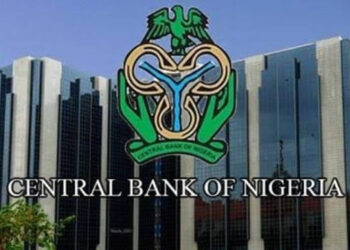The President of the Lagos Chamber of Commerce and Industry, Mrs Toki Mabogunje, and the President, of Manufacturers Association of Nigeria (MAN) Mr Mansur Ahmed, have tasked the Central Bank of Nigeria to review the nation’s foreign exchange policies.
According to a news report by the News Agency of Nigeria, NAN, the Heads of LCCI and MAN agreed that a working framework to expand the scope of the market mechanism in the determination of the exchange rate is needed in the country.
Mabogunje explained that the unification of the exchange rates across boards should be prioritised. This according to her would help to stimulate a sustainable recovery and bolster investor’s confidence.
Ahmed on the other hand, called on the Federal Government and the Central Bank of Nigeria (CBN) for a review of the Foreign Exchange (FX) policies of the country, as the current policies do not support the importation of unavailable local inputs.
He stressed further saying that the acute shortage of FX has resulted in persistent erosion of naira’s value, and this is a key challenge that manufacturers, industrialists and households continue to battle within Nigeria.
What they are saying
The President of MAN in his statement said:
- “The high-cost import bill for the productive inputs decreases manufacturing working capital and feeds into manufacturing commodities prices, thereby making the sector less competitive.
- “The acute shortage of FX resulting in the erosion in naira parity has been a major operational nightmare to manufacturers in the country.
- “Most worrisome is the inability of manufacturers to meet transactional obligations with oversea suppliers as required. A favourable exchange, a case of appreciation of the naira, no doubt, would present good omen and improves manufacturing production,”
Mrs Mabogunje the President of LCCI called on the CBN to take more proactive steps, as a disproportionate reliance on-demand management strategies is not a sustainable solution to the recurring foreign exchange crisis, in her words, she said:
- “While the Lagos Chamber appreciates efforts of the Central Bank of Nigeria (CBN) in preserving the scarce foreign exchange resources at a time the country is faced with relatively lower oil price and production, we reiterate our position that a disproportionate reliance on-demand management strategies is not a sustainable solution to the recurring foreign exchange crisis.
- “In the year 2021, we urge the CBN to de-emphasise demand management policies and intensify efforts in improving the supply side of the foreign exchange market.
- “We welcome the CBN’s recent policy stating that beneficiaries of Diaspora Remittances should be paid in foreign exchange. The policy is a step in the right direction in resolving the liquidity issue in the currency market by ensuring availability of foreign exchange, especially at the retail segment.
- “This should be replicated for other sources of inflows such as export proceeds, Foreign Direct Investment (FDIs), and Foreign Portfolio Investments (FPIs).“Robust remittance inflow is expected to moderate FX pressure and narrow the wide parallel market premium as economic agents would have access to a harmonised rate.”
What you should know
- It is essential to note that foreign exchange is a key determinant of investment via its link with macroeconomic and monetary determinants like inflation and interest rates.
- The volatility of a nation’s exchange rate and large depreciation in its value is a deterrent to investment, production and economic activities.
- This volatility does not only erode the real value of investment and capital. In extension, it leaves manufacturing activities under pressure, as the depreciation in naira value (decline in the real value of naira) leads to an increase in the cost of imported inputs.
- Nairametrics reported yesterday that the exchange rate between the Naira and the US Dollar weakened at the NAFEX (I&E Window) to close at N398.5/$1 on Monday, 8th February 2021. This represents a decline of 0.6% compared to the closing rate of N396.17/$1 recorded on Friday, 5th February 2021. While the exchange rate at the black market remained unchanged at N480/$1.
- Bloomberg recently reported that Nigerian naira weakened to a more than 10-month low on the interbank market on Tuesday as the nation continues to grapple with a double-whammy scenario of low-dollar supply and high demand for the greenback.























